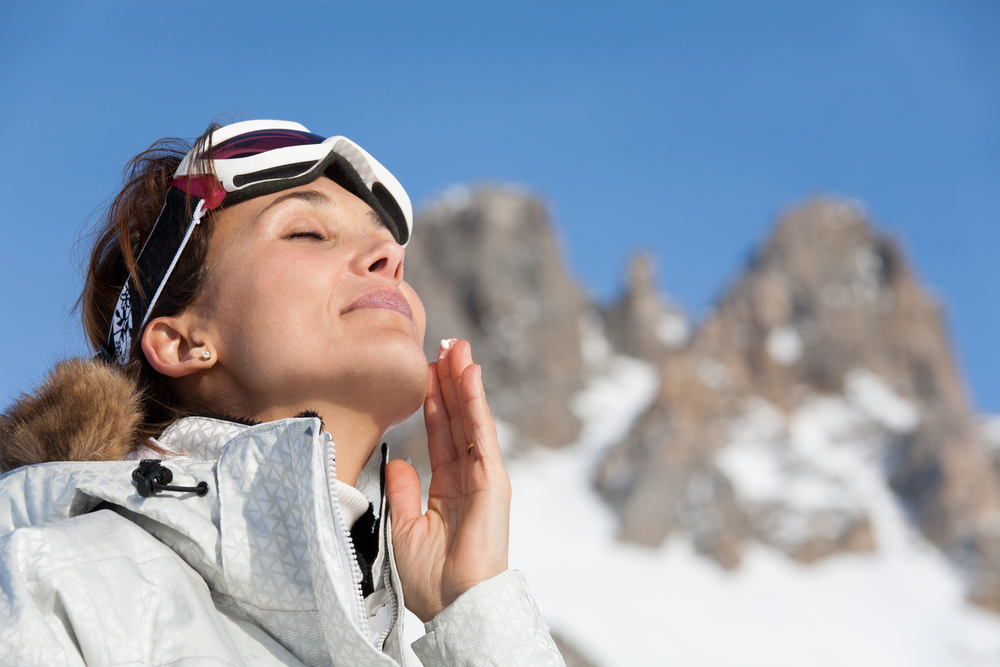As it gets colder and the sun sets earlier, you may find yourself spending more time inside. And, depending on where you live, you're probably bundled up when you do go outside, leaving only the skin on your face exposed. This may make you feel invincible to the elements. But you're still at risk of damage from the winter sun—even if it isn't shining all day long. Sun protection in winter may look a little different, but it's no less important than any other time of year. After all, skin health is a daily practice.
No need to worry if you haven't worn sunscreen in the past. You can up your winter ultraviolet (UV) protection game with a few tweaks starting with these tips.
Is Sunscreen Needed in Winter?
Yes, sunscreen is needed in winter. It's a common misconception that you only need sunscreen during the long, sunny days of summer. Sure, the sun is the most visible in the summer, and it stays out longer. UV radiation also peaks in the spring and summer months. But the truth is that wearing sunscreen is still important in the winter for several reasons. The winter sun is sneaky when it comes to its potential skin dangers, so it's no time to let up on your sun care regimen.
Sun Protection in Winter vs. Summer: What's the Difference?
The sun's UV rays are divided into two frequencies: UVA and UVB rays. UVA rays are longer in wavelength and are associated with skin aging. UVB rays have shorter wavelengths and cause sunburn. Both types of UV rays are dangerous and can lead to skin cancer without proper protection.
According to the Skin Cancer Foundation, UVB rays are strongest in the summer, but they can still burn your skin in the winter—including on cloudy days. So, you need to protect your skin even when it's snowing. UVB rays are also stronger at high altitudes where the atmosphere is thinner, and up to 80 percent of UV light reflects off snow and ice. This means the sun's rays hit you twice when you're participating in winter sports like skiing or snowboarding, doubling your chances of getting burned. Sunburns increase your risk of premature skin aging and—more importantly—skin cancer.
UVA rays remain consistent year-round. These rays can also penetrate through glass, clouds, and fog, so you're still at risk from sun damage in winter, even when you're indoors.
How Can You Protect against Winter Sun Damage?
The Skin Cancer Foundation suggests several ways to protect your skin from the sun's harmful UV rays during the winter. Here are a few expert tips to keep in mind as you fortify your winter skin care routine.
Layer Up
Clothing is your first line of defense against UVA and UVB rays. If you live in a cold climate, you likely already cover parts of your body that are usually exposed in the summer, like the arms, legs, feet, torso, and scalp. However, your face, neck, hands, and ears are all vulnerable to skin cancer. Be sure to cover up in the winter with a hat, scarf, gloves, and sunglasses to protect your eyes from the glare.
Apply Sunscreen
Next up: sunscreen. It's key to wear sunscreen in the winter. Follow the usual guidance and apply a broad-spectrum sunscreen of SPF 30 or higher to any exposed areas of the body. If you're hitting the slopes, try a formula like EltaMD UV Active Spray Broad-Spectrum SPF 30. This lightweight mineral formula offers 80 minutes of water and sweat resistance, and it's enriched with Bisabolol to help visibly reduce the appearance of redness. Win-win!
Use SPF Lip Balm
Dry, cracked lips are a common winter woe—and lip skin is susceptible to sun damage, too. Try a moisturizing lip balm that can help defend against both the winter sun and the chapped lips that so often go hand in hand with harsh winter weather. For example, EltaMD UV Lip Balm Broad-Spectrum SPF 36 soothes and protects with antioxidants and Hydromanil™ for immediate relief and long-lasting moisture.
Making Skin Health a Habit
If you wear sunscreen in the summer, then wearing sunscreen in the winter shouldn't take any extra effort. The key is to implement a sunscreen routine all year round so it becomes a daily habit, like brushing your teeth, that you won't leave home without. The result? Healthy, glowing skin that feels nearly effortless.
